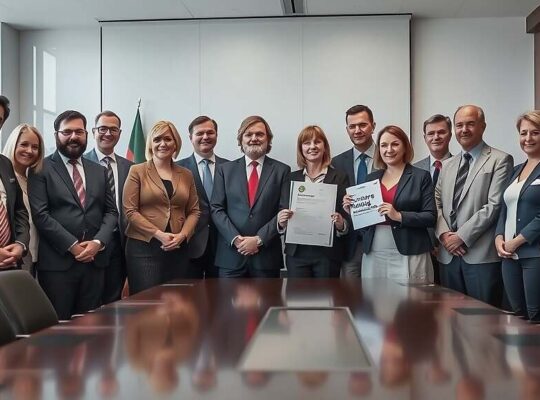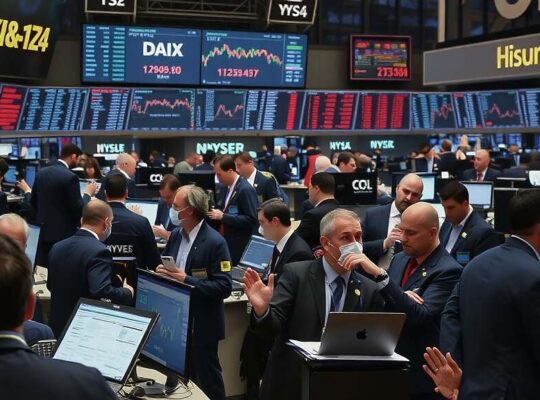German equities opened strongly Monday, with the DAX index climbing to approximately 23,345 points – a gain of 1.1% above Friday’s closing level. Initial gains were led by Bayer, Siemens Energy and Infineon, while Rheinmetall, Zalando and Telekom lagged at the bottom of the ranking. The market’s bullish sentiment appears to be fuelled by a combination of factors, including the positive performance of US markets on Friday and a renewed sense of optimism surrounding potential Federal Reserve policy shifts.
Investor attention is currently focused on the release of the Ifo Business Climate Index for November, a closely watched indicator of Germany’s economic health. The index’s data, expected shortly, will provide a crucial snapshot of business confidence and potential headwinds facing the German economy amidst ongoing geopolitical uncertainty and persistent inflationary pressures.
According to Thomas Altmann of QC Partners, the rally reflects a “late-stage bargain hunting” dynamic, where investors are capitalizing on recent price dips. The rapid rebound from the breach of the 23,000-point level on Friday highlights the sustained demand at strategically important price thresholds – a sign of underlying investor conviction despite broader market anxieties.
Critically, a significant driver of the positive momentum is the resurgence of hope surrounding potential interest rate cuts by the Federal Reserve. This shift in sentiment is directly attributable to the delayed release of the September US employment report, which revealed a concerning uptick in unemployment. This data has dramatically revised expectations regarding the Fed’s December meeting, with the market now pricing in a 65% probability of a rate reduction – a stark contrast to the mere 25% probability prior to the report’s publication. This, however, raises concerns regarding the Fed’s balancing act between curbing inflation and avoiding a potential economic slowdown.
The strength of the Euro, currently trading at 1.1534 US dollars, also reflects this changing global economic landscape. While the climb indicates relative stability, it also presents potential challenges for German export-dependent companies. The decline in the price of Brent crude oil, falling to $62.29 per barrel, provides a small measure of relief from inflationary pressures but also signals continued volatility in global energy markets, a critical factor for Europe’s economic outlook.












